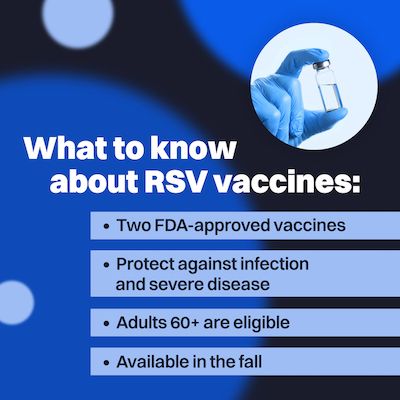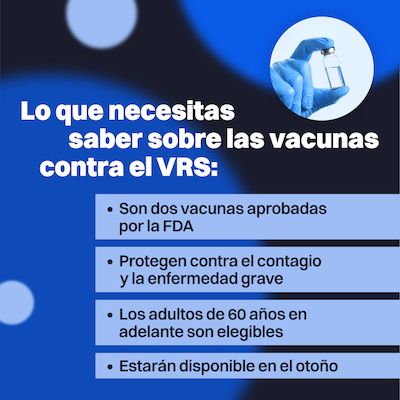Anti-vaccine narratives have gone mainstream
Welcome to the Health Care Infodemiology Brief, a brand-new newsletter for clinicians. We know your time is valuable and your inbox full, so why should you read this brief each month?
Because the fast-paced flow of information in the digital age has made your job harder. And we can help.
Infodemiology studies the vast amount of health information that bombards us every day, helping to track disease trends online, understand health behaviors, and gain insight into public sentiment. Our team of media monitoring analysts, trained journalists, and health communication experts monitor this data daily, and each month we’ll bring you the trending narratives that are impacting health decisions.
We’ll also provide the latest peer-reviewed readings on health communications, trainings, links to helpful resources, and more.
In this first edition, we’re tracking anti-vaccine narratives that have gone mainstream, with viral posts discussing the safety and necessity of COVID-19, RSV, and childhood vaccines. Many of these narratives were fueled by high-profile figures, like presidential candidate Robert F. Kennedy Jr., who have large platforms to influence public opinion.
But even though these false claims have millions of views, retweets, and shares, people are still looking for trusted sources of information. That’s you. Each month we’ll provide talking points that you can use with patients, because correcting myths and falsehoods in real time makes a difference.
Like what you see or have a suggestion for how we can make this newsletter more helpful? Send us an email at Info@PublicGoodProjects.org. We’d love to hear from you.
Concerning narratives from the past month
New RSV vaccines and treatment face skepticism and resistance
False claims about RSV are circulating online following the FDA’s approval of two new RSV vaccines for older adults and an antibody treatment for young children, as well as the backing of a maternal RSV vaccine for infants. Some vaccine opponents claim that RSV vaccines are unnecessary or insufficiently tested. Other trending conversations questioned the three-shot strategy to combat a winter respiratory virus “tripledemic,” with many social media users falsely claiming that the vaccines will be combined into one shot and that all three vaccines are unnecessary. Even those who aren’t generally opposed to vaccines may be experiencing some degree of “vaccine fatigue” and may be hesitant to seek out RSV vaccines. Read the fact check here.
RFK Jr. brings fringe anti-vaccine ideas into the mainstream
Long-time anti-vaccine figure RFK Jr. made headlines last month after appearing on the popular Joe Rogan podcast. The appearance sparked a wave of misinformation about the general safety of COVID-19 vaccines and other routine immunizations. Most troublingly, Kennedy’s podcast interview and subsequent appearances spotlighted the consistently debunked anti-vaccine myths that childhood vaccines cause autism and chronic illness. High-profile figures like Kennedy help lend legitimacy to once-fringe anti-vaccine rhetoric that may undermine individual trust in routine vaccines. Read the fact check here.
Concerns persist about COVID-19 vaccines during pregnancy
False claims continue circulating online about mRNA COVID-19 vaccine safety for pregnant people, including that the vaccines increase the risk of miscarriage, stillbirth, and congenital abnormalities. This type of misinformation may dissuade pregnant people, who already have one of the lowest COVID-19 vaccination rates, from staying up to date on their vaccinations. These worries, combined with the surge of negative sentiment about RSV vaccines and an antibody treatment for children, indicate that the fall vaccination campaign may face an uphill battle. Read the fact check here.
What to say in response
Few things in medicine have higher testing and safety standards than vaccines.
- All vaccines, new and old, must undergo rigorous safety trials before they can be administered and are closely monitored by health authorities.
- Vaccines save millions of lives each year and have eliminated or dramatically reduced once-common diseases.
We have new tools in our toolbox to fight virus season. RSV vaccines can help protect our friends and family members from a potentially deadly respiratory virus.
- Each year, RSV hospitalizes around 180,000 people and kills 14,000, mostly children under 5 and adults over 65.
- Currently approved for people over 60, RSV vaccines are between 86 and 94 percent effective against severe illness. An antibody treatment for young children, which was up to 78 percent effective at preventing hospitalization, was also recently approved.
- The vaccines and antibody treatment are expected to be available this fall.
The research is overwhelmingly clear: COVID-19 vaccines are safe to receive during pregnancy.
- If you’re pregnant, COVID-19 can be especially dangerous. If you get sick, you’re at increased risk of preterm birth and stillbirth.
- Getting an updated COVID-19 vaccine is the best way to protect yourself and your baby.
- Studies in over 360,000 people worldwide found no increase in preterm birth, miscarriage, stillbirth, or congenital abnormalities after COVID-19 vaccination.
What we’re reading
- Issues in Science and Technology: Misunderstanding Misinformation
- Nature: Disinformation researchers under investigation: what’s happening and why
- Scientific American: How Susceptible Are You to Misinformation? There’s a Test You Can Take
- Nature Human Behaviour: Understanding and combatting misinformation across 16 countries on six continents
- BMC Proceedings: Leading from the frontlines: community-oriented approaches for strengthening vaccine delivery and acceptance
- Healio: Q&A: What PCPs need to know about the new RSV vaccines
Quick-response media assets
Below, we’ve provided a social media asset in English and Spanish. These assets can be used on social media to fight false claims and help provide your network with accurate information. Just right-click the asset, or press and hold on mobile, to download.


Proposed caption copy:
Each year, millions of people contract RSV, leading to around 180,000 hospitalizations and 14,000 deaths. Infants, young children, and older adults are the most at risk. The FDA recently approved three highly effective options to protect against RSV this fall: two vaccines for adults over 60 and one antibody treatment for young children. Another vaccine, given during pregnancy to protect infants, is also in the works.
Publicación propuesta:
Cada año, millones de personas contraen VRS, lo que conlleva a alrededor de 180,000 hospitalizaciones y 14,000 muertes. Los bebés, los niños pequeños y los adultos mayores sufren el mayor riesgo. Recientemente, la FDA aprobó tres opciones altamente eficaces contra el VRS que estarán disponibles en otoño: dos vacunas para adultos mayores de 60 y un tratamiento de anticuerpos para niños pequeños. Otra vacuna, que se aplicaría durante el embarazo para proteger a los bebés, también está en proceso.
Powered by PGP in partnership with the ABIM Foundation.

